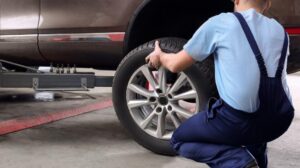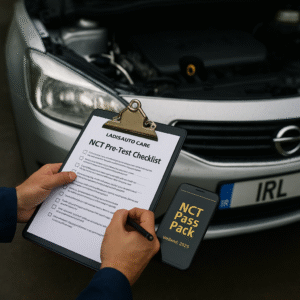Learn how to diagnose slow start issues in your vehicle with this comprehensive guide. Discover steps to identify starter and engine problems and understand why your car may start slowly.
What You Will Learn:
- How to diagnose a slow starter
- Steps to diagnose engine starting problems
- The first step in diagnosing starter problems
- What it means when your car starts up slowly
How Do You Diagnose a Slow Starter?
Diagnosing a slow starter involves a series of checks to identify the root cause:
- Battery Health:
- Check Voltage: Use a multimeter to measure battery voltage. A fully charged battery should read around 12.6 volts.
- Inspect Terminals: Ensure terminals are clean and secure.
- Listen for Sounds:
- Clicking Noise: A clicking sound when turning the key often indicates a starter motor issue.
- No Sound: If there’s no sound, the problem may lie with the electrical connections or the starter solenoid.
- Starter Motor Inspection:
- Check Connections: Ensure all electrical connections to the starter motor are tight and free of corrosion.
- Test Starter: If accessible, test the starter motor directly by bypassing the ignition switch.
For professional help with diagnostics, consider using Auto Query.
How Do You Diagnose Engine Starting Problems?
To diagnose engine starting problems, follow these steps:
- Battery and Electrical System:
- Battery Voltage: Check the battery voltage to ensure it is fully charged.
- Electrical Connections: Inspect all major electrical connections for cleanliness and security.
- Fuel System:
- Fuel Pressure: Use a fuel pressure gauge to check if the fuel pump is delivering adequate pressure.
- Fuel Filter: Ensure the fuel filter is not clogged and restricting fuel flow.
- Ignition System:
- Spark Plugs: Inspect spark plugs for wear or fouling and replace them if necessary.
- Ignition Coils: Test ignition coils to ensure they are delivering proper voltage.
For advanced diagnostics, you can use Auto Query Pro.
What is the First Step in Diagnosing Starter Problems?
The first step in diagnosing starter problems is to check the battery:
- Battery Voltage: Measure the battery voltage with a multimeter.
- Battery Terminals: Ensure the terminals are clean and properly connected.
If the battery is in good condition, proceed to check the starter motor and associated electrical connections.
What Does It Mean When Your Car Starts Up Slowly?
When your car starts up slowly, it typically indicates issues with one or more of the following:
- Battery:
- Weak Charge: A weak or old battery may not provide sufficient power to start the engine promptly.
- Starter Motor:
- Worn Components: The starter motor or solenoid may be worn out and unable to engage the engine properly.
- Fuel System:
- Insufficient Fuel Delivery: Problems with the fuel pump or clogged fuel filter can delay the engine starting process.
- Ignition System:
- Faulty Spark Plugs or Coils: These can cause misfires or weak ignition, leading to slow starts.
By following these steps and utilizing the provided tools, you can effectively diagnose and resolve slow start issues in your vehicle, ensuring smooth and reliable performance.





